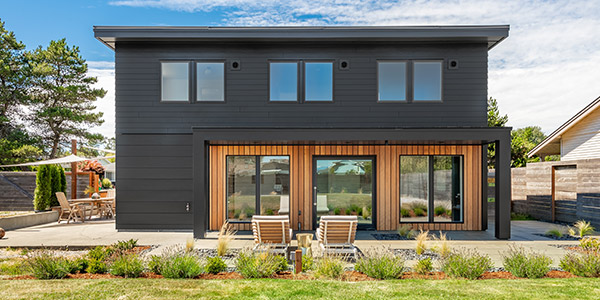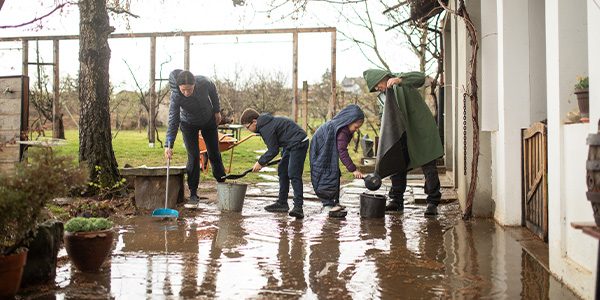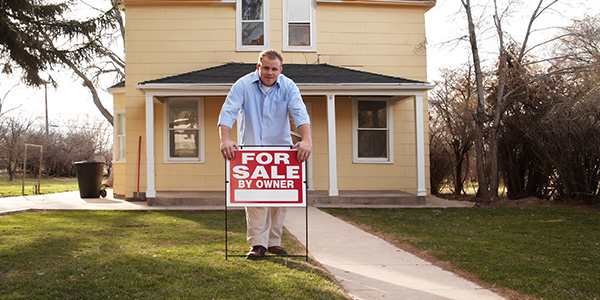Homeowners
Can You Benefit from an Accessory Dwelling Unit (ADU) or Guest House?
October 22, 2019
Looking for an extra way to make some money on a rented dwelling on your property while you remain in your home? Do you need to add living space for an elderly parent, grandparent, friend, or grown son or daughter? Whatever your motivation, maybe it's time you looked into an Accessory Dwelling Unit (ADU).
What's an Accessory Dwelling Unit?
While gaining in popularity, an ADU is an old idea. You may have heard it referred to by another name such as a granny flat, in-law unit, guest house, tiny house, backyard cottage, laneway house, carriage house, casita, or secondary dwelling unit.
An ADU is a second small dwelling sharing the same ground (or attached to) a larger regular single-family home. It can vary in format and style as one of the following:
- Free-standing unit
- Attached addition (also called a "bump-out ADU")
- Internal conversion (part of the primary house converted into an ADU)
- Add-on room over the garage
- Converted garage or basement
Differentiated by zoning and local land use ordinances, an ADU typically has its kitchen, bathroom, living area, and separate entrance. It often connects its water and electricity to the primary dwelling. Also, both the primary house and the ADU tend to have the same owner. ADUs are usually significantly smaller than the primary residence – ranging anywhere from 300 –1000 square feet – and must follow city ordinances as to minimum and maximum allowable size.
With a low environmental footprint, ADUs generally keep the characteristics of a neighborhood intact, while encouraging multigenerational living and aging in place.
The Appeal of ADUs
An ADU has a wide range of appeal, particularly among families caring for an elderly relative or a millennial who may be feeling the crunch of a particular region's tighter housing market. Compared to apartments, detached ADUs often command a premium rate for rent.
However, for renters not wanting to pay an elevated price to rent a home, an ADU can more easily accommodate their budget, especially if they're single residents not need a lot of space. As a landlord, an ADU can provide the advantages of another stream of income. This additional income is ideal, especially for those who need to build or catch up on their retirement savings.
Upfront Costs: Building an ADU or Guest House
Before you can potentially profit from an ADU, one has to be built first (that is, if an up-to-code ADU doesn't already exist on the property). The building process begins by determining what type of ADU should be built (i.e., stand-alone vs. attached) based on preference and approval for zoning requirements.
From pouring the concrete slab to plumbing and electricity, there are obvious costs to consider such as building materials, a licensed general contractor, and permit fees. For those less inclined to build an ADU from the ground up, pre-fabricated kits are available for assembly. As you consider various building designs and options, your budget will help determine the size and scope of your project.
In addition to construction costs, there are obvious maintenance costs for an ADU unit, so it's always good to keep those in mind when budgeting or charging rent. The bottom line is to understand that if you view your ADU as an investment, it will take some time to get a return. However, if you're in it for the long term, you have a better chance of recovering your building costs and profiting, especially in a high-demand housing market.
Check Regulations
As mentioned, each city has its own set of municipal building codes, zoning ordinances, and required permits that are important to follow for safety and to avoid possible fines. While in many areas building permits have been reduced and regulations loosened (check your city's guidelines) to ease overcrowding, there are still plenty of procedures and regulations to follow such as the size of the lot legally required to accommodate the ADU, parking options for the renter, set-back requirements for the dwelling, etc. Just remember that it's important to contact your city to understand and follow local ordinances before you build.
An Extra Source of Income
Renting an ADU can be a win-win for the homeowner in need of cash and the renter in need of a residence. Whether you're renting out an ADU full-time time or occasionally as an Air BnB (again, check your city's guidelines), you are generating a source of income. There's also an opportunity for home flippers to add value to a property by constructing an ADU or bringing an existing one up to code.
It should be noted, however, that as a landlord you will have legal responsibilities – from paying taxes to performing repairs. You will also have to set the rent price by doing some research about the market where your ADU is located.
Saving You Money, Too
An ADU has the potential to save you money on long-term assisted living facilities for an elderly relative, especially if the structure already exists on your property and doesn't have to be built or significantly upgraded. If you require less space as you get older, moving into this space yourself and renting out your primary residence can also allow you more income on a larger property to rent out in your retirement years.
Let's Get Started!
So how about it? Are you ready to add an ADU to your property? Contact New American Funding today to learn more about this comprehensive renovation loan solution to finance your ADU.





 Smart Moves Start Here.
Smart Moves Start Here.